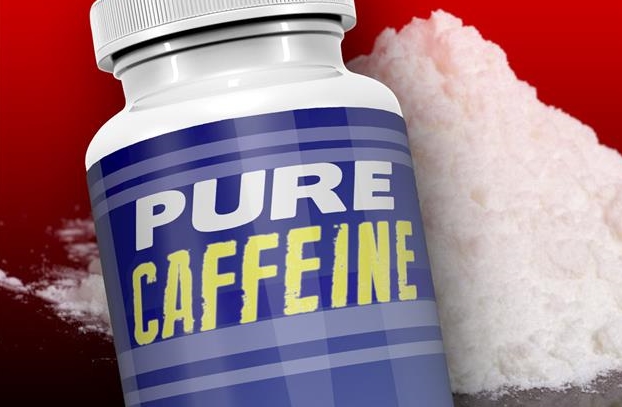September 2, 2015
FDA Takes Action on Bulk Pure Powdered Caffeine Products
 September 1, 2015
Agency continues to warn consumers about the dangers of using pure powdered caffeine.
The U.S. Food and Drug Administration is taking action today to help prevent additional deaths from the use of pure powdered caffeine, potentially dangerous products that have already resulted in the known deaths of two teenagers.
The agency issued warning letters to five distributors of pure powdered caffeine because these products are dangerous and present a significant or unreasonable risk of illness or injury to consumers. The difference between a safe amount and a toxic dose of caffeine in these pure powdered products is very small. Furthermore, safe quantities of these products can be nearly impossible to measure accurately with common kitchen measuring tools. Volume measures, such as teaspoons, are not precise enough to calculate how many milligrams of caffeine are in the serving size. Pre-existing conditions can intensify the effects of caffeine and make the product more dangerous for these individuals.
Following the deaths of two young men in good health in 2014, the FDA issued Consumer Advice alerting consumers to the dangers of pure powdered caffeine. One teaspoon of pure powdered caffeine is equivalent to the amount of caffeine in about 28 cups of regular coffee. While consumers of caffeinated products such as coffee, tea, and soda may be aware of caffeine’s less serious effects – such as nervousness and tremors – they may not be aware that these pure powdered caffeine products are much more potent and can cause serious health effects, including rapid or dangerously erratic heartbeat, seizures and death. Vomiting, diarrhea, stupor and disorientation are also symptoms of caffeine toxicity.
The FDA will continue to aggressively monitor the marketplace for pure powdered caffeine products and take action as appropriate. If violations exist, the FDA can pursue enforcement action, such as seizure of the product or an injunction to prevent the firm from continuing to manufacture or market the product.
http://www.fda.gov/Food/NewsEvents/ConstituentUpdates/UCM460097
September 1, 2015
Agency continues to warn consumers about the dangers of using pure powdered caffeine.
The U.S. Food and Drug Administration is taking action today to help prevent additional deaths from the use of pure powdered caffeine, potentially dangerous products that have already resulted in the known deaths of two teenagers.
The agency issued warning letters to five distributors of pure powdered caffeine because these products are dangerous and present a significant or unreasonable risk of illness or injury to consumers. The difference between a safe amount and a toxic dose of caffeine in these pure powdered products is very small. Furthermore, safe quantities of these products can be nearly impossible to measure accurately with common kitchen measuring tools. Volume measures, such as teaspoons, are not precise enough to calculate how many milligrams of caffeine are in the serving size. Pre-existing conditions can intensify the effects of caffeine and make the product more dangerous for these individuals.
Following the deaths of two young men in good health in 2014, the FDA issued Consumer Advice alerting consumers to the dangers of pure powdered caffeine. One teaspoon of pure powdered caffeine is equivalent to the amount of caffeine in about 28 cups of regular coffee. While consumers of caffeinated products such as coffee, tea, and soda may be aware of caffeine’s less serious effects – such as nervousness and tremors – they may not be aware that these pure powdered caffeine products are much more potent and can cause serious health effects, including rapid or dangerously erratic heartbeat, seizures and death. Vomiting, diarrhea, stupor and disorientation are also symptoms of caffeine toxicity.
The FDA will continue to aggressively monitor the marketplace for pure powdered caffeine products and take action as appropriate. If violations exist, the FDA can pursue enforcement action, such as seizure of the product or an injunction to prevent the firm from continuing to manufacture or market the product.
http://www.fda.gov/Food/NewsEvents/ConstituentUpdates/UCM460097 